Interview: Theatre Life with Bill Largess and Ann Norton
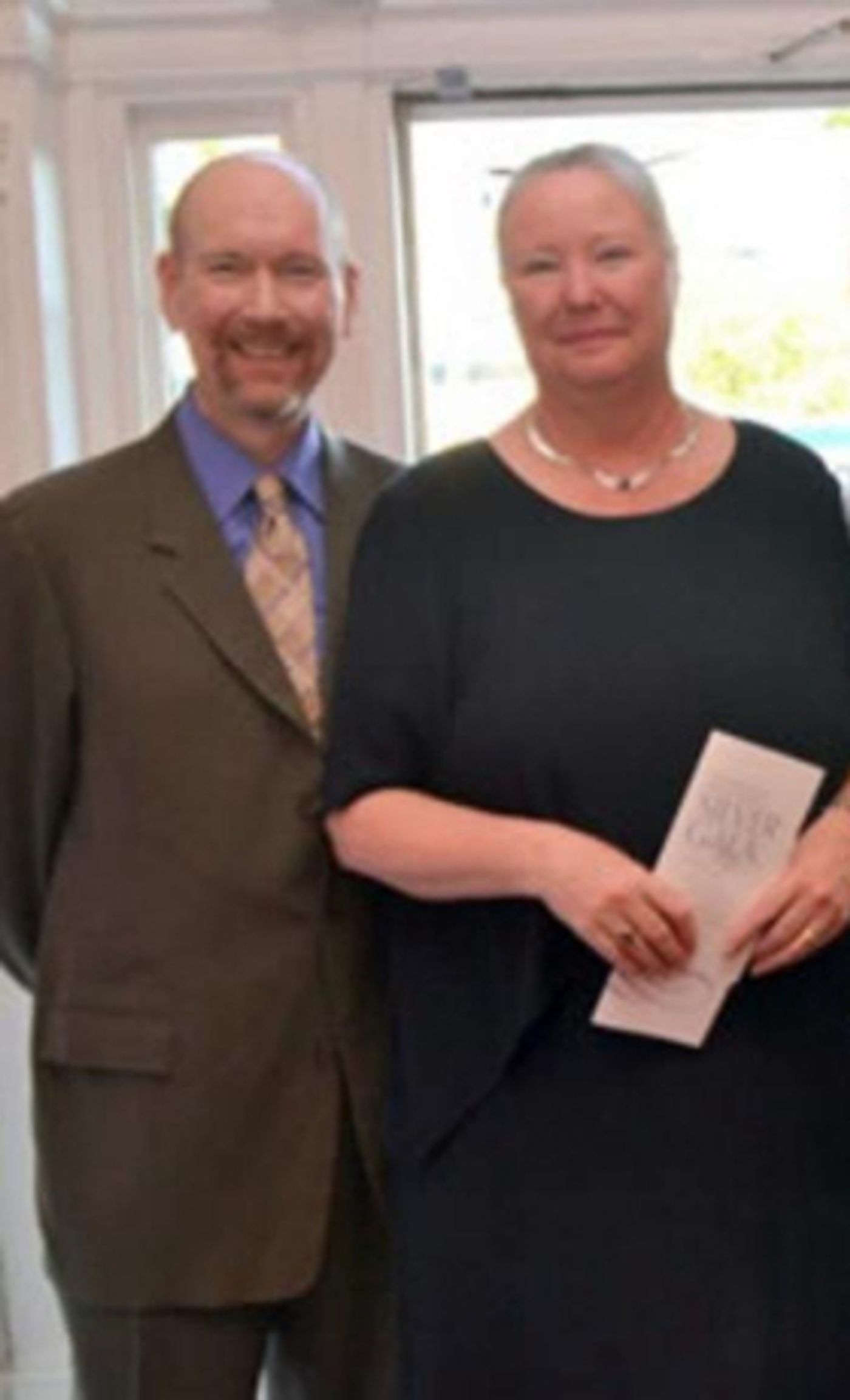
Today's subjects, Bill Largess and Ann Norton, are living their theatre lives as the Artistic Director and Executive Director of one of the gems in our local theatre scene.
Washington Stage Guild (WSG) is one of those companies that consistently puts out a great product without the benefit of a large budget. This season alone, the thirty-year-old Equity company has presented works by George Bernard Shaw, Dylan Thomas, Arlene Hutton, and now, Kenneth Jones with Alabama Story. A few other past productions include Terra Nova, Elling, Tryst, Pen and An Ideal Husband.
Over the years, Bill Largess has directed some of WSG's most memorable productions. Recent credits include See Rock City, Last Train to Nibroc, A Child's Christmas in Wales and Other Stories and Back to Methusalah. He is also on the faculty of George Washington University's Department of Theatre and Dance where he recently staged Ahmal and the Night Visitors in conjunction with the school's music department.
As WSG's Managing Director, Ann Norton likes to stay behind the scenes making sure the company runs smoothly. Her late husband John MacDonald was the company's Founding Producing Artistic Director and Ann ensures each production is of the highest standard as a tribute. By day, she is Program Administrator for Theatre and Dance at George Washington University.
You have to applaud Bill and Ann's vision and love for the theater as exemplified in their work at WSG. The production elements and performances are consistent across every show. They've also created a niche for themselves by selecting many lesser known plays that have an old timey feel to them and that's just fine with me.
I urge you to go see Alabama Story, which plays through April 15th, and see why I wholeheartedly support and admire Bill Largess and Ann Norton. These are two of our best local thespians and their work definitely deserves your attendance.
How did you become involved in Washington Stage Guild?
Bill: Both of us were in the founding group. A bunch of us were alumni of Catholic University's Drama Department and knew each other from there. In 1986 we coalesced during a production of Shaw's Heartbreak House directed by John MacDonald at Source Theatre and decided to try our luck.
Ann: Thirty-three years later we're all still speaking to each other!
When the company started out, what was the initial goal?
Bill: We've always been very focused on the language of dramatic literature-which explains all the Shaw! We hoped to offer DC audiences less-frequently produced plays, plays that were worthy but had fallen through the cracks, or that somehow hadn't made it to Washington.
Ann: When we were starting out, everybody advised us to be specific about what we'd do to justify our existence. Someone actually said, "You have to explain why we need another theatre, after all we already have 12!"
Ann, has the company been in its current location since the beginning?
No, The Undercroft Theatre is our fifth location after Carroll Hall on G Street, Source and Arena's Living Stage on 14th Street, and Flashpoint back on G. It's the sixth if you count the one show we did at Catholic University's Callan Theatre.
How do you go about choosing your season?
Bill: Everyone in the company is always looking for plays that will suit us, and as we read and discuss them, we try and pick plays that suggest a theme to the season, plays that bounce off each other, contrast with, or amplify each other. The season as a whole is the real work of art.
Ann: And naturally we have to keep costs in mind, so if we want to do a big play we know we need smaller ones in the other slots.
Bill, some would say that the work WSG does caters to older patrons. What do you think is the best way to attract younger patrons to the fine work this company does?
I think that when young people find their way to us, they love our work as much as anyone. But reaching them is a different challenge than our original followers back in 1986. Then, newspapers and mailings were our main ways to attract audiences, with the occasional poster or flyer. Now, social media is more important than ever, and we've stepped up our use of it enormously in the past few years.
Bill, can you please tell us a little something about WSG's upcoming production Alabama Story?
It's based on a true series of events in 1959, when an Alabama librarian recommends a children's book, The Rabbit's Wedding, be added to state collections. The book (still in print, by the way) pictures a little black rabbit marrying a little white rabbit. A state senator led a fire-and-brimstone crusade against it, and against the librarian. The play by Kenneth Jones has fictional elements, but the facts of the affair, and its outcome, are so dramatic on their own that it makes for a wonderful play.
Ann, what is the biggest change you've seen since the company first started? For instance, is there more competition for audience now?
Certainly there is more competition, not just from the dozens of theaters, but from Netflix, the Internet, YouTube, and so on. Plus, there's been a subtle change in people's social habits in that restaurants have become such a popular destination. I think they've become entertainment for some people.
Please pick a few of your favorite WSG productions and explain why you chose them.
Bill: Murder in the Cathedral, because of Alan Wade's performance and the great ensemble work. Man & Superman, which I was in, because it's such a dazzling, audacious play. Translations, from our first season, because it was our first Brian Friel, and we'd eventually do a US premiere of his Making History.
Ann: I always loved Busman's Honeymoon, Dorothy Sayers' Lord Peter Wimsey play. And The Underpants, which was a big hit! The Guardsman, our first Molnar play, was so clever, I really liked the twists in it.
Theatre Life logo deigned by Kevin L;aughon.
All photos courtesy of Washington Stage Guild.
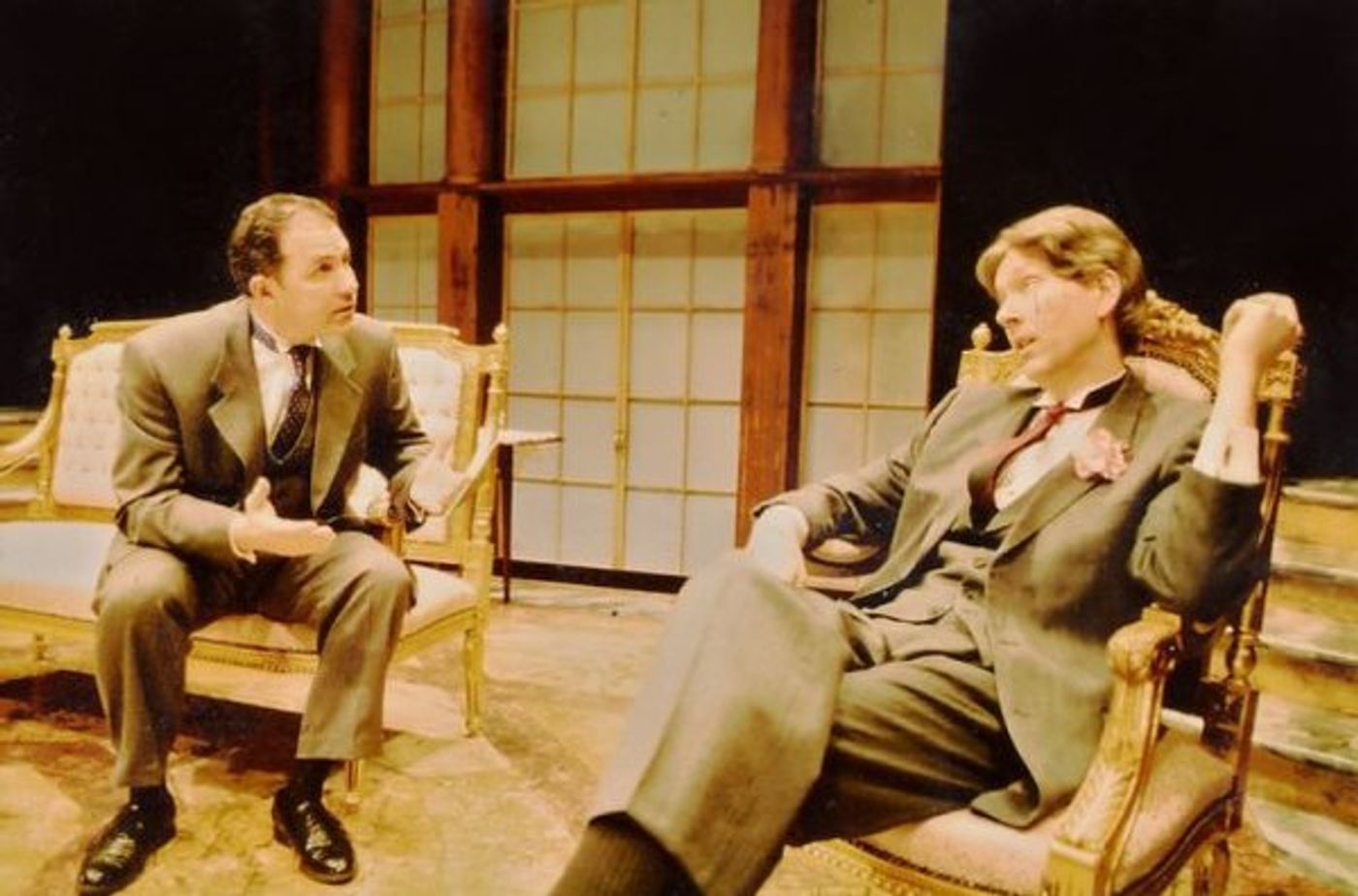
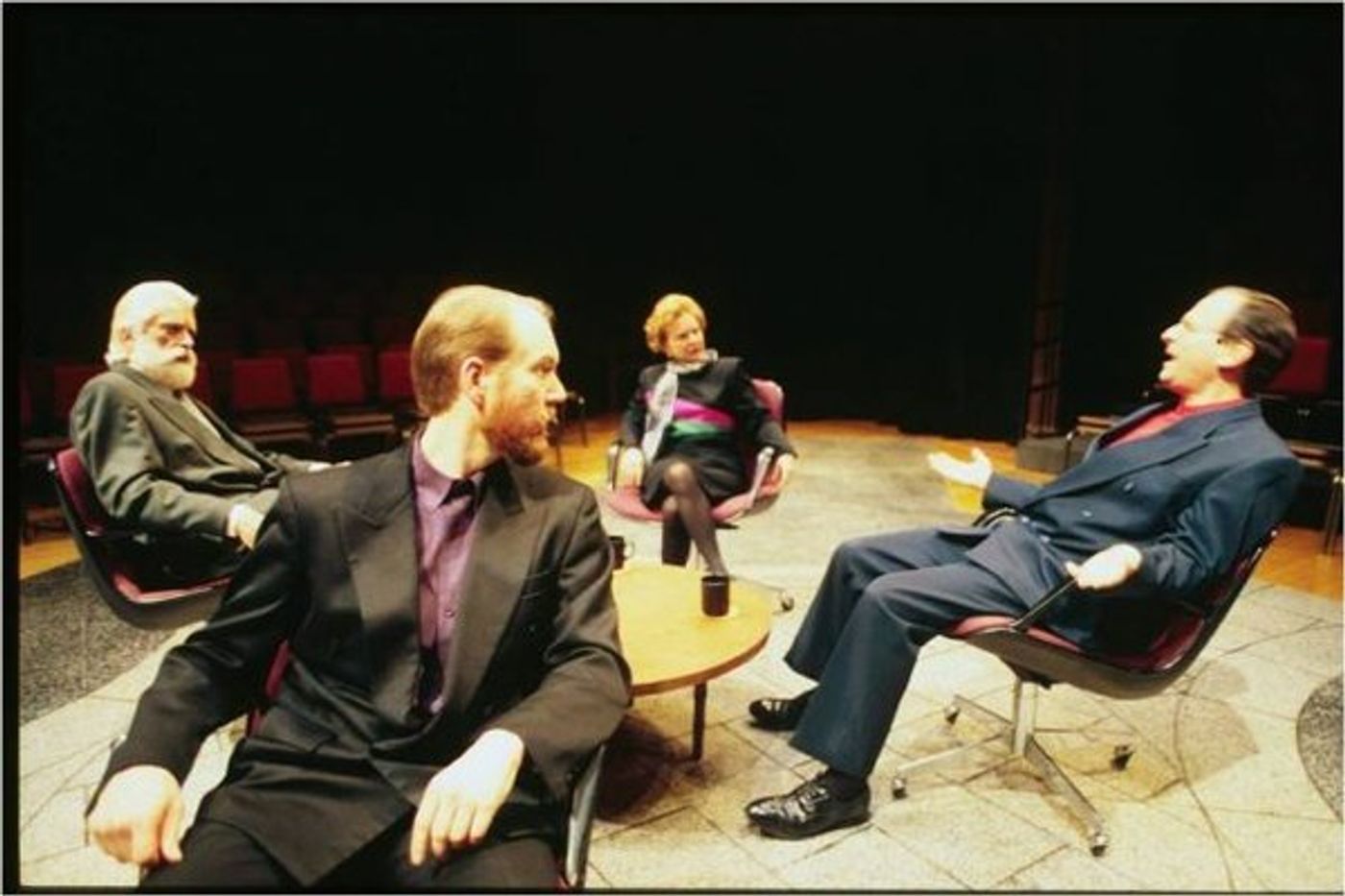
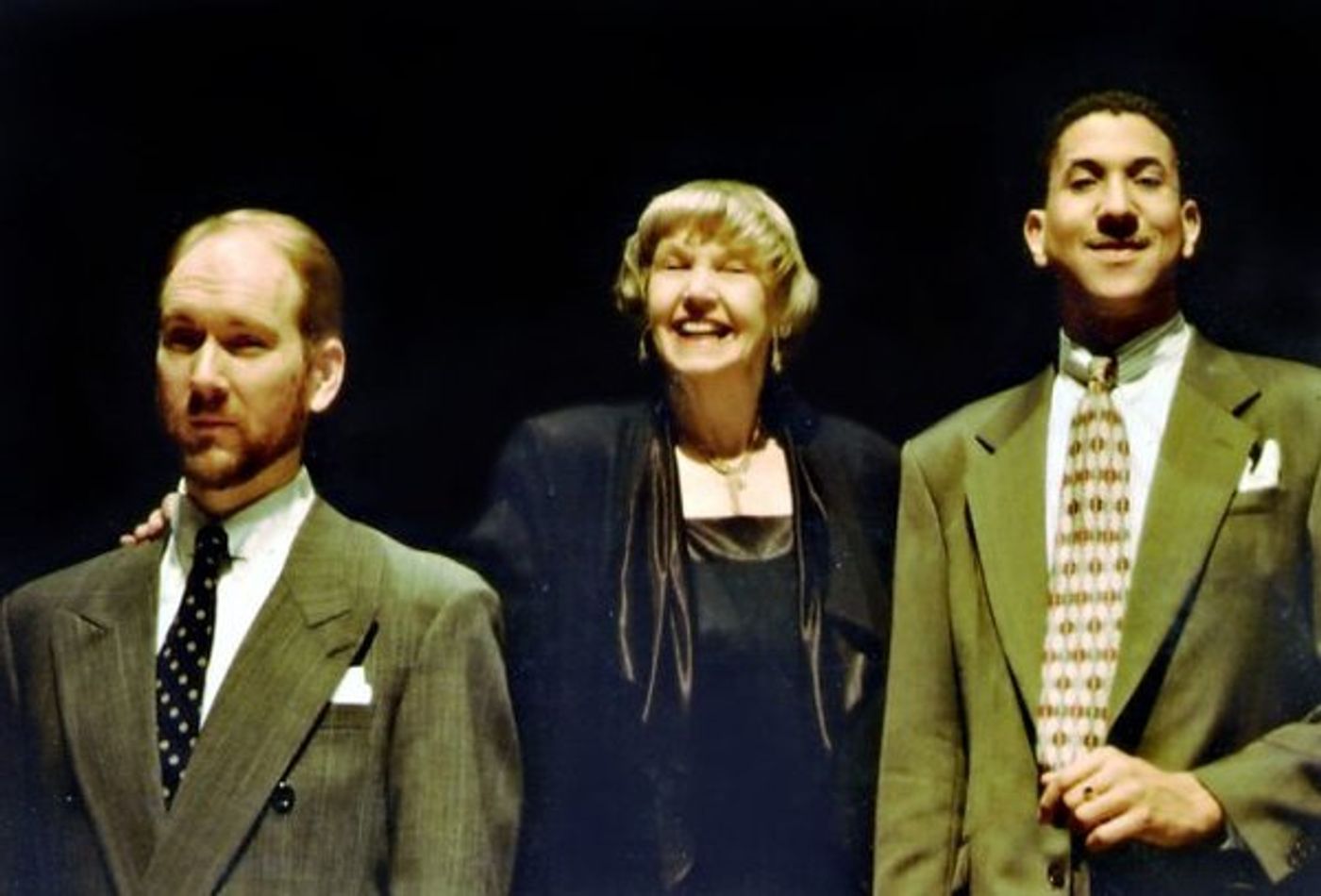
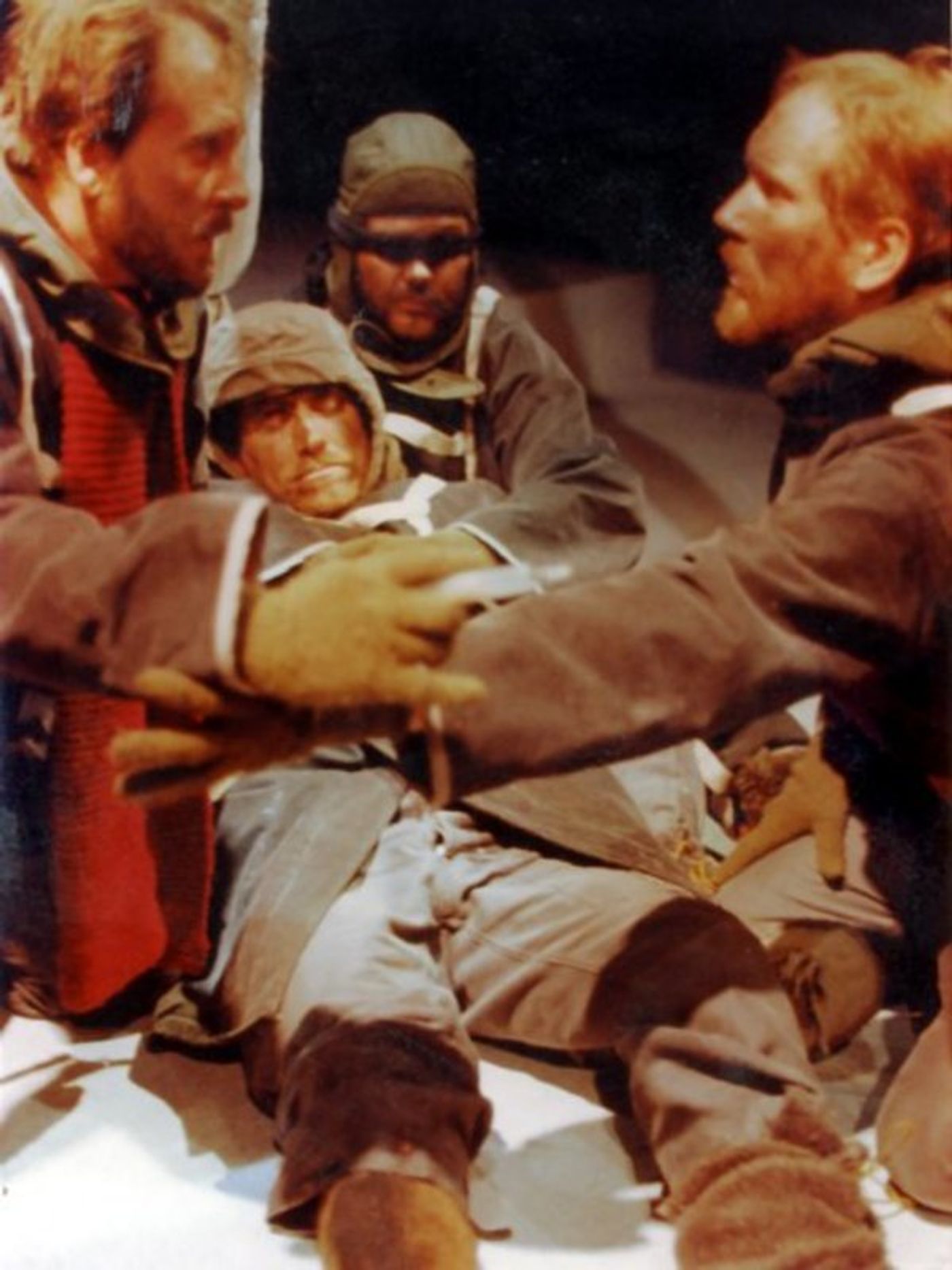
The 1990 production of Ted Tally's Terra Nova.
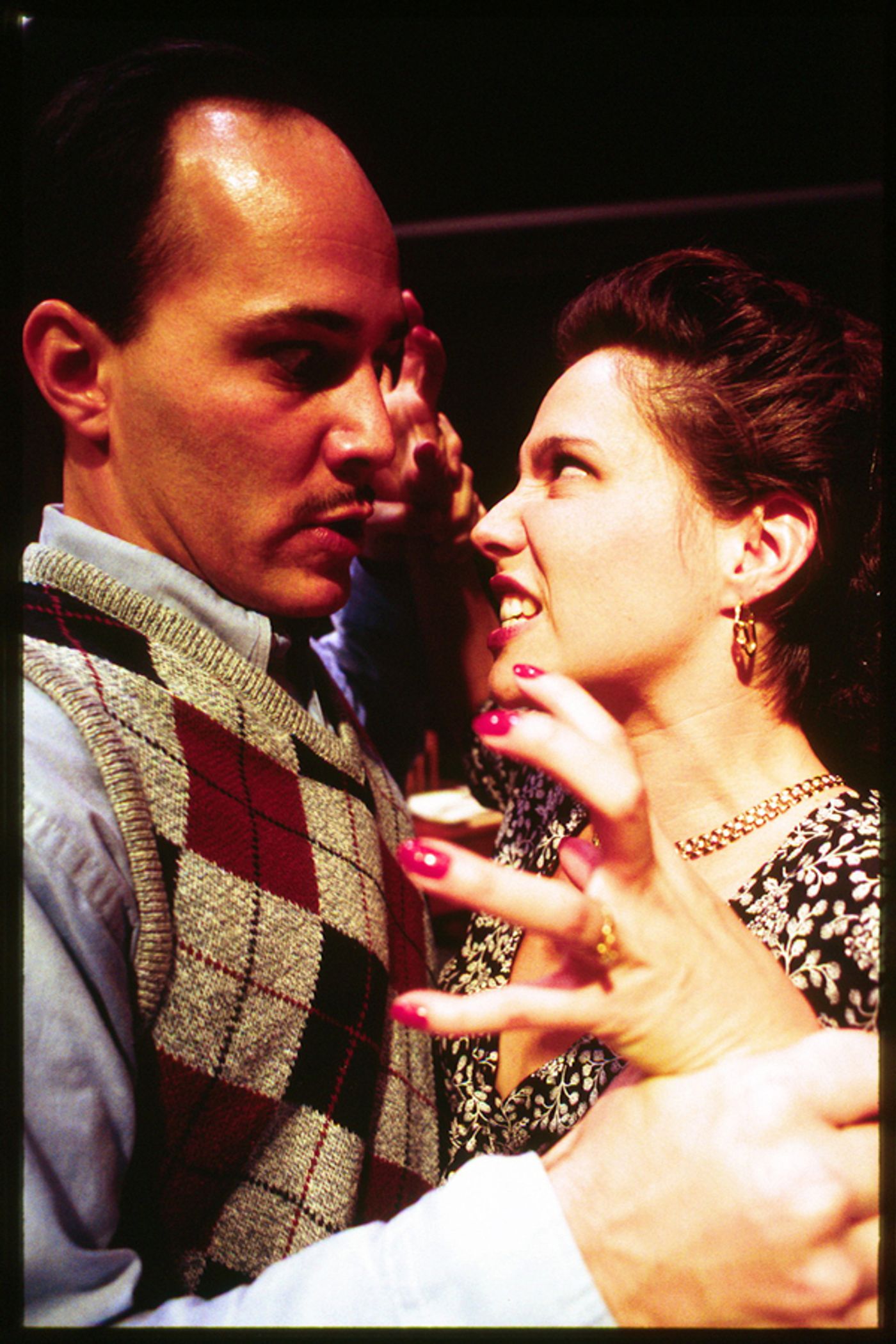
Videos

.gif)